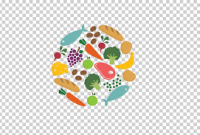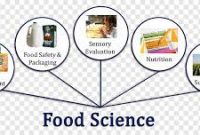Nourishing the Future: A Comprehensive Exploration of Food Research
Exploration of Food Research
Introduction:
The dynamic and multidisciplinary area of food research is essential to solving issues with nutrition, food security, sustainability, and health on a worldwide scale. The importance of comprehending the intricacies of the food system has increased dramatically in recent years. This article delves into the diverse field of food research, including topics like food safety, sustainable agriculture, nutritional science, and cutting-edge technology influencing food production in the future.
1. Nutritional Science:
In the quest to understand the complex link between diet and health, nutritional science is at the forefront of food research. Developments in this area have expanded our knowledge of the nutritional makeup of foods, how dietary habits affect chronic illnesses, and how important micronutrients are to general health. In order to customize food recommendations, researchers are investigating personalized nutrition, taking into account each person’s unique genetic variants and lifestyle choices. This tailored strategy might completely change the way we think about and handle obesity, diabetes, and cardiovascular disease-related public health issues.
2. Sustainable Agriculture:
Sustainable agriculture has emerged as a critical issue as the world’s population rises. This field of food research aims to create methods that maximize agricultural yields while reducing their negative effects on the environment. Innovative methods for sustainable agriculture are beginning to take shape, including vertical farming, precision farming, and agroecology. These techniques provide an emphasis on the effective use of resources, a decrease in the need for chemical inputs, and the use of technology to boost output. In addition to addressing the issue of feeding a rising population, sustainable agriculture lessens the negative environmental effects of conventional agricultural methods.
3. Food Safety:
One of the main goals of food research is to guarantee the security of the food supply chain. Researchers try to find and reduce any dangers related to pollutants, allergies, and foodborne pathogens from farm to fork. Technological developments in food safety, such as quick detection techniques and blockchain tracking systems, help to improve the overall security of the food supply. Food research is essential to stopping outbreaks and preserving public health because it identifies the origins of contamination and puts strong safety controls in place.
4. Biotechnology and Genetic Engineering:
Food research is being revolutionized by biotechnology and genetic engineering, which provide creative ways to improve crop resilience, nutritional value, and total output. The purpose of genetically modified organisms (GMOs) is to enhance their nutritional content, raise their resistance to pests, and withstand extreme weather conditions. Although these technologies have the potential to address issues related to food security, they also bring up moral and legal questions. To fully utilize biotechnology in food production, a balance must be struck between safety and creativity.


5. Alternative Proteins and Plant-Based Diets:
Alternative proteins and plant-based diets are receiving more attention as a result of the search for varied and sustainable protein sources. To lessen the environmental impact of conventional animal agriculture, food experts are investigating the creation of plant-based meat replacements, insect-based proteins, and cellular agriculture. These substitutes meet the growing need for morally and ecologically responsible food options while also addressing issues with resource depletion and greenhouse gas emissions.
6. Global Food Security:
Millions of people worldwide still struggle with hunger and malnutrition as a result of inadequate access to food. By creating methods to raise agricultural yields, streamline distribution networks, and strengthen food systems’ resistance to climate change, food research aims to solve this problem. Researchers, legislators, and international organizations must work together to create long-term solutions that guarantee everyone has fair access to wholesome food.
7. Culinary Innovation and Food Trends:
Beyond the lab, food research explores novel tastes, textures, and gastronomic experiences in the context of culinary innovation. Innovative food items and preparation methods have been produced as a result of the confluence of science and culinary arts. Innovation in the food sector is also driven by customer tastes and cultural factors that impact culinary trends. Food technologists, chefs, and researchers work together to create goods that satisfy changing dietary requirements and tastes.


Conclusion:
In summary, food research is a dynamic and developing topic that includes a wide range of academic specialties, including biotechnology, sustainable agriculture, and nutritional science. The significance of food research increases with the world’s population growth and its unparalleled difficulties in the areas of nutrition, food security, and environmental sustainability. To solve these issues and build a future of food that is both healthy and sustainable, cooperation between scientists, legislators, industry partners, and the general public is imperative. A robust and prosperous food system for future generations is being shaped by food research, which is a driving force behind continuous innovation, ethical business practices, and a dedication to global food fairness.



